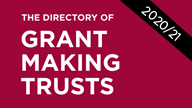Policy, campaigns & research, Policy, Research
Family Life and the Armed Forces Community Evaluation
Discover our latest report on 84 projects across two programmes, Families in Stress and Removing Barriers to Family Life.
This week we launched our research report, Family Life and the Armed Forces Community Evaluation, which looks at the grants made by the Armed Forces Covenant Fund Trust (the Trust) across their ‘Removing Barriers to Family Life’ funding theme to support armed forces families.
The entire funding theme consisted of 84 projects, and totalled £11.47 million in funding. The projects were diverse and tackled a range of topics including bereavement, projects for children and young people, support for domestic violence and abuse and stalking, and projects that dealt with loneliness and social isolation.
The report is aimed primarily at organisations running similar projects and policy makers, but I think there’s something of interest for everyone involved with charities (as well as the armed forces units, CICs, and public sector organisations featured in the report). The COVID-19 pandemic features heavily in this report, and it affected a large number of the project. When we surveyed the recipients of grant funding under the ‘Removing Barriers to Family Life’ programme , only one out of 37 respondents stated that it had not affected their project.
Many of the projects and the organisations running the projects were hit hard by the pandemic. One organisation even reported that ‘we fear that COVID-19 has changed the landscape for grant-funded programmes’. But then we started to see the projects adapting so that they could continue to serve their beneficiaries. For example, CAN International set up a Gurkha helpline service to provide information to Gurkha families related to tackling isolation. Finchale Group ran a six-week virtual cookery programme to look at how nutrition can impact on mental health. Home-Start Mid & West Suffolk set up a WhatsApp group to allow parents to connect and share thoughts and ideas to cope during lockdown. That’s only three examples, but the report features many more.
The Trust were crucial to this response; 34 of the 59 projects in the Removing Barriers to Family Life programme completed grant variation forms that provided a range of options such as postponing their project, extending the funding period and to allow variations to the project and budget.
It’s easy to get lost in the data when you work on a piece of research like this. You can easily spend weeks hacking and slashing your way through the jungle of financial data and progress update forms, but every now and then you stop and realise something. And it’s something you already knew, but it still manages to amaze you every single time. Every point on a graph, every case study, and every quote featured in the report comes from a team of people who are working tirelessly to support armed forces families. Even when the world itself stopped and nobody knew what was going to happen next, they kept working. That’s one thing I really enjoy about working on research like this, and I can’t wait to see what future projects have in store for us.
To read the Family Life and the Armed Forces Community Evaluation, click here.


